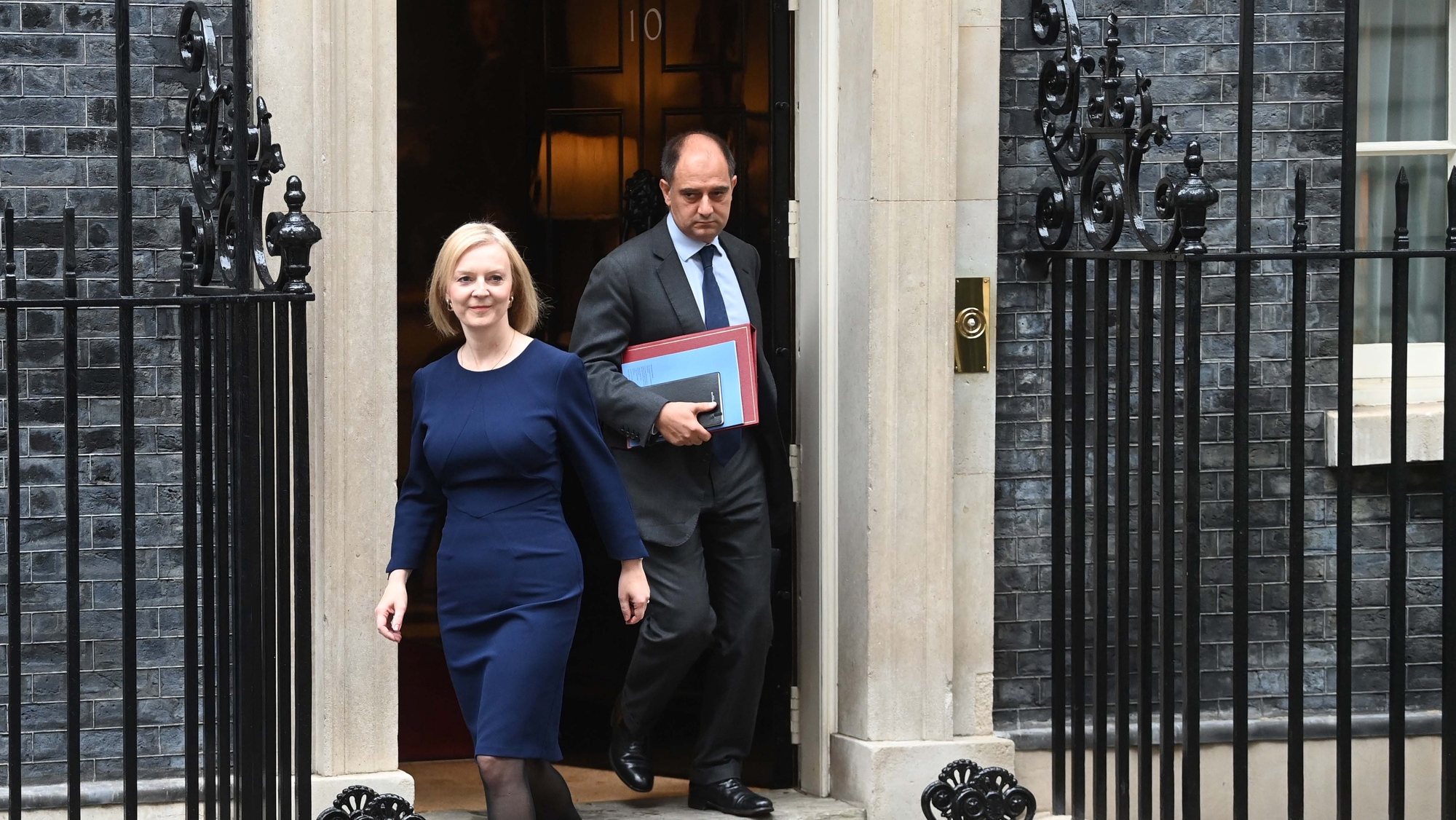The British Government reiterated this Friday its intention to wait until November 23 to publish the updated fiscal strategy and economic forecasts, despite the turbulence in the financial markets that caused the depreciation of the pound and that the interest rates of the debt they will shoot
After meeting with members of the Office of Budget Responsibility [Office of Budget Responsibility, OBR]independent body that is in charge of the economic forecasts that accompany the state budgets, the Minister of Finance, Kwasi Kwarteng, announced that an “economic and fiscal forecast” will be published on the scheduled date.
The minister was accompanied by the prime minister, Liz Truss, which is unusual for these meetings, although the executive insisted that this is not an emergency meeting.
For its part, the OBR said that it intended to deliver a preliminary report with calculations on the evolution of the economy starting next Friday, “as always, based on our independent judgment on the economic and fiscal outlook, and the impact of government policies.”
Opposition parties and even members of the Conservative Party itself, including the chairman of the Parliamentary Finance Committee, Mel Stride, urged Kwarteng to bring forward the publication of his plans.
The executive is under pressure to try to calm financial markets after the pound devalued to a 50-year record low of $1.03 and 10-year interest rates hit 4.5 percent, the most since 2008.
The pound sinks to an all-time low in the budget plans of Liz Truss and her finance minister
Debt interest measures the return investors receive for their investment, and the increase reflects an increase in risk.
The volatility prompted the Bank of England to step in and announce a 65 billion pound ($74 billion at current exchange rates) program to buy government bonds, which helped stabilize the pound and interest on the debt.
Bank of England buys long-term debt to curb turmoil
At the origin of this week’s disturbances is the “mini-budget” presented on September 23 by the finance minister, dominated by tax cuts and the freezing of energy prices for families and businesses, measures aimed at stimulating economy at risk of recession.
In addition to reversing the rise in the Social Security contribution, in force since April and canceling the planned rise in corporate tax, Kwarteng unexpectedly announced the extinction, in 2023, of the upper 45% of the personal income tax, the reduction from 20% to 19% in the lower bracket and an immediate rebate of the tax on the purchase of housing.
The cost of the largest fiscal intervention in decades has been estimated at approximately 45 billion pounds (51 billion euros)To which are added 60,000 million pounds sterling (68,000 million euros) from the energy support package in the first six months alone, all supported by the State.
These measures were not accompanied by independent economic forecasts from the OBR or spending reduction plans, which generated doubts from economies and rating agencies about the sustainability of the public debt, currently at 96.6% relative to the Gross Domestic Product (GDP) .
Interest on British 10-year debt has already risen 325% this year, making it much more expensive for the government to sell bonds to finance policy.
The government’s strategy was also criticized by the International Monetary Fund (IMF), which warned of the risk of an acceleration in inflation, which fell to 9.9% in August, which could lead the Bank of England to rise again reference interest rates, currently at 2.25. %
As a result, several banks have withdrawn hundreds of mortgage loan products from the market in recent days due to the expectation of analysts and economists that interest rates could rise as much as 6% next year.
On a positive note, the National Statistics Office (ONS) corrected the accounts of the economy and instead of a fall of 0.1% in the second quarter, between April and June 2022, after all, the GDP grew by 0 ,two%.
This revision contradicts the scenario that the country is already in a recession, as previously suggested by the Bank of England.
Truss government in crisis. Labor 33 points ahead of the Conservatives in the poll
Source: Observadora
